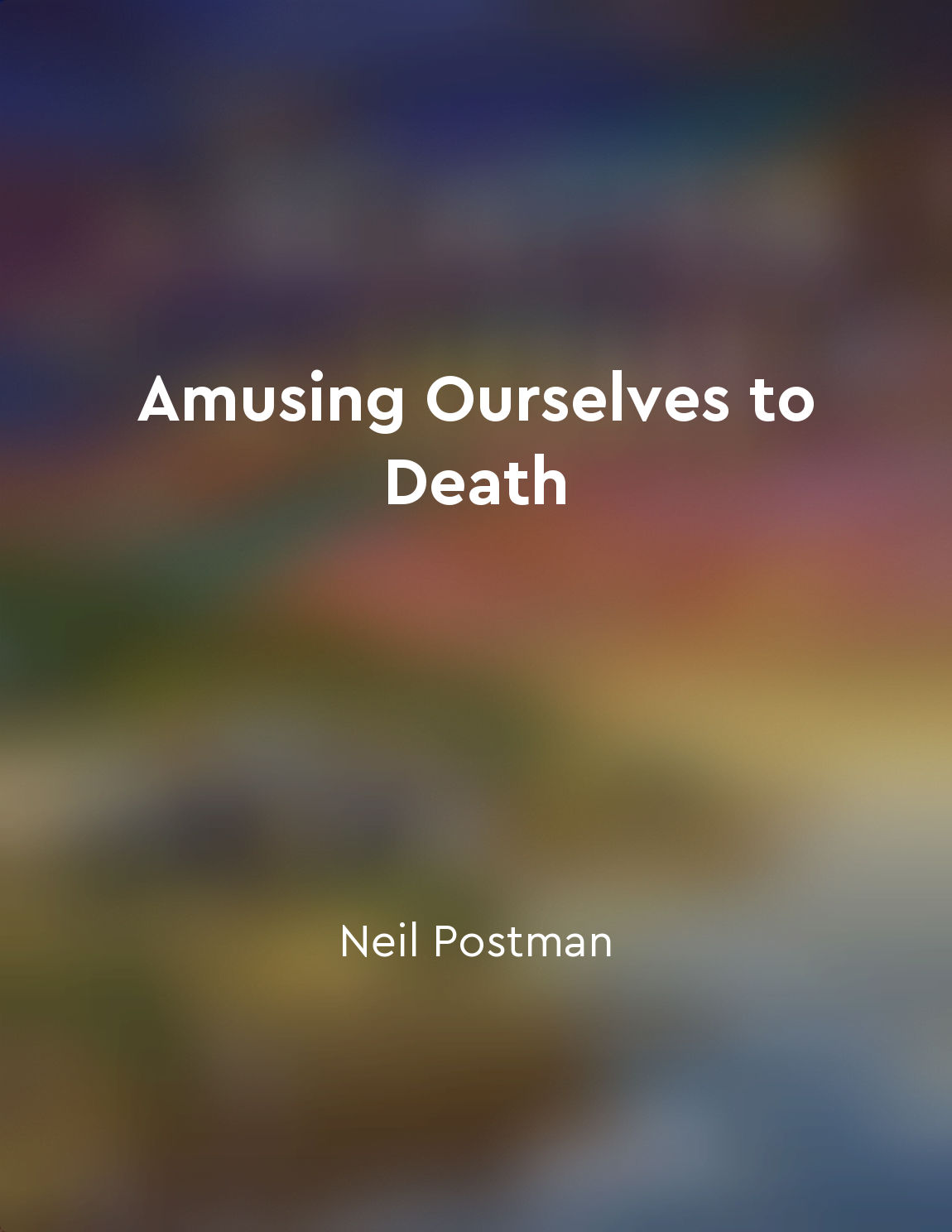Television shapes our culture more than we realize from "summary" of Amusing Ourselves to Death by Neil Postman
Neil Postman argues that television has a profound influence on shaping our culture, although most people are unaware of the extent to which it does so. Television has become such a ubiquitous presence in our lives that we often fail to recognize its impact on our values, beliefs, and behaviors. We tend to take for granted the messages and images that television presents to us, without critically examining their effects on our society. Postman suggests that television's primary function is not to inform or educate, but to entertain. The medium of television, with its emphasis on visual and auditory stimulation, is better suited to the transmission of emotional and sensational content rather than complex and intellectual ideas. As a result, television programs tend to prioritize spectacle and excitement over substance and depth, leading to a culture that values entertainment and distraction over thoughtful reflection and critical thinking. Furthermore, Postman argues that television has a fragmented and superficial nature that hinders our ability to engage with complex issues and ideas. The rapid pace of television programming, combined with its reliance on short segments and sound bites, promotes a culture of instant gratification and instant gratification, where viewers are constantly seeking novelty and entertainment rather than deep understanding and contemplation. This shallow engagement with information and knowledge has profound implications for our society, as it shapes the way we perceive and interact with the world around us. In addition, Postman contends that television's bias towards visual and emotional content has a profound impact on our political and social discourse. By privileging image over substance, television encourages a style of communication that prioritizes style and appearance over substance and content. Politicians and public figures are often judged based on their appearance and charisma rather than their ideas and policies, leading to a culture of superficiality and spectacle in our public sphere.- Postman's argument is that television plays a significant role in shaping our culture, often in ways that are subtle and insidious. By understanding the influence of television on our values, beliefs, and behaviors, we can begin to critically examine the messages and images that we consume, and strive to create a culture that values depth, complexity, and critical thinking over entertainment and distraction.


